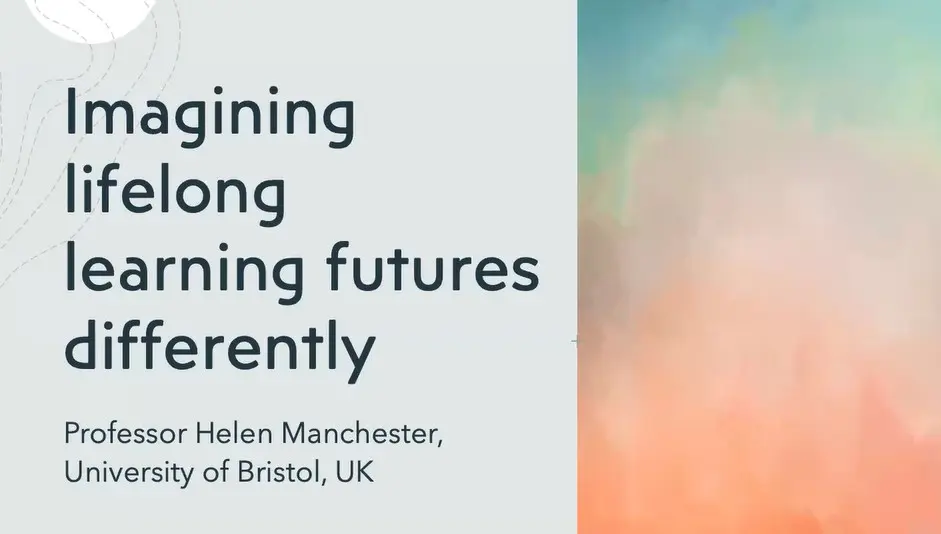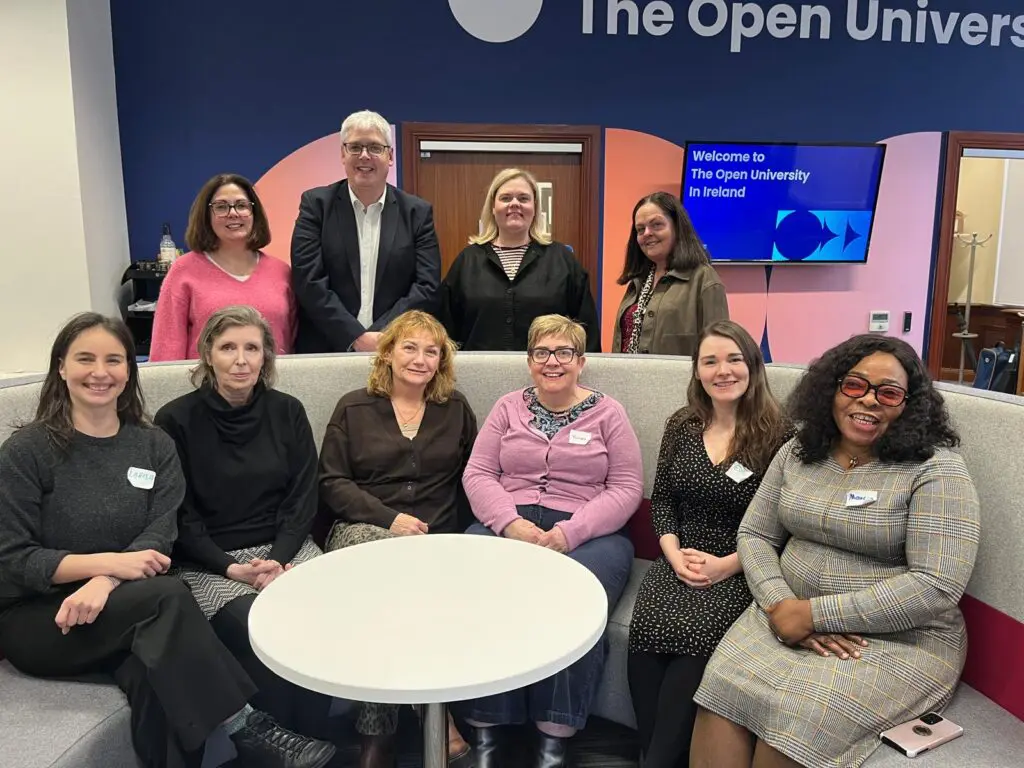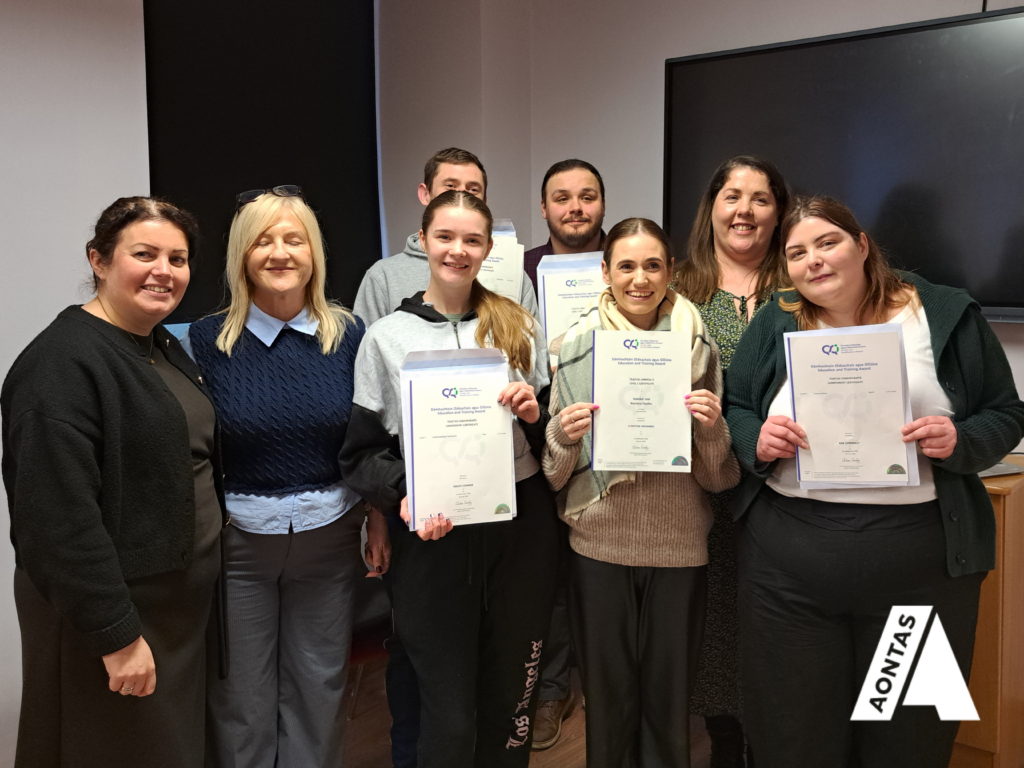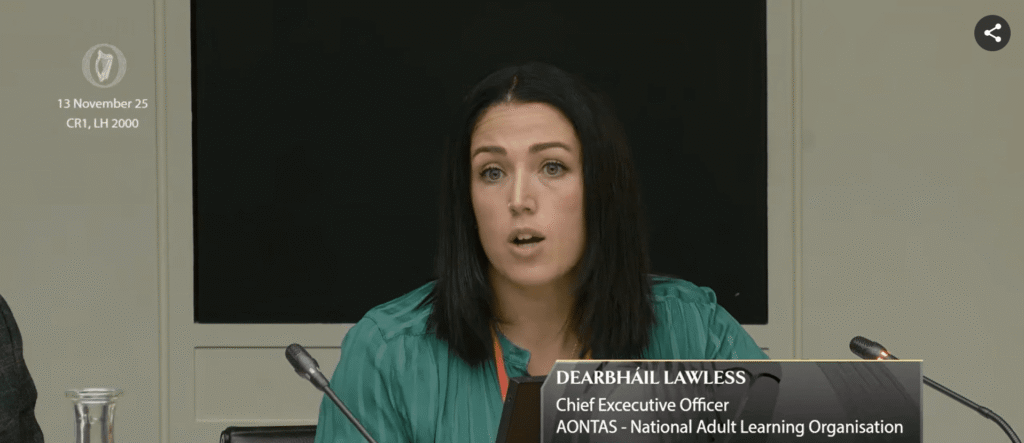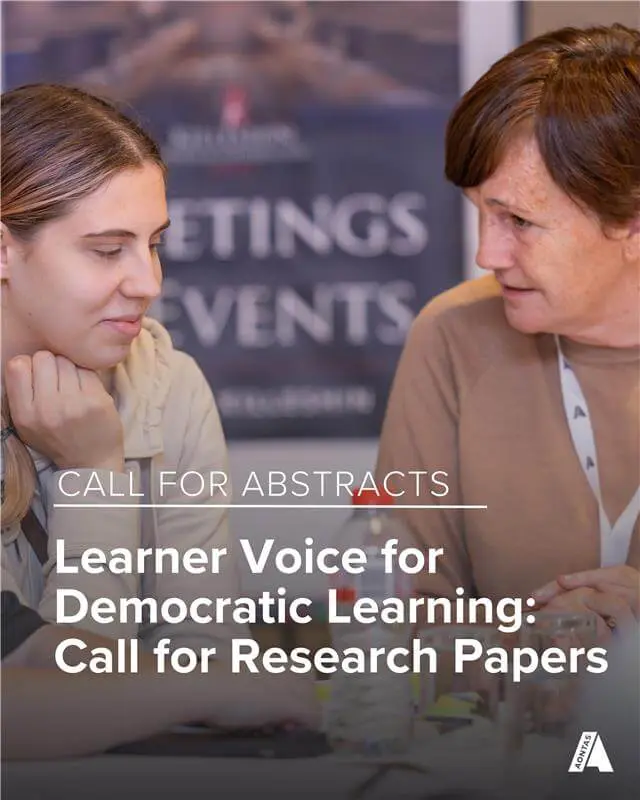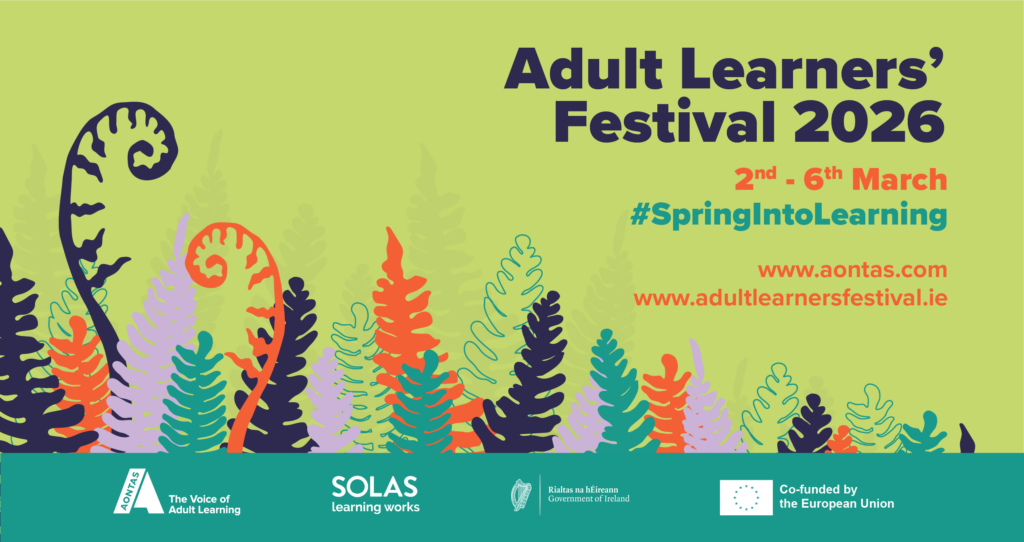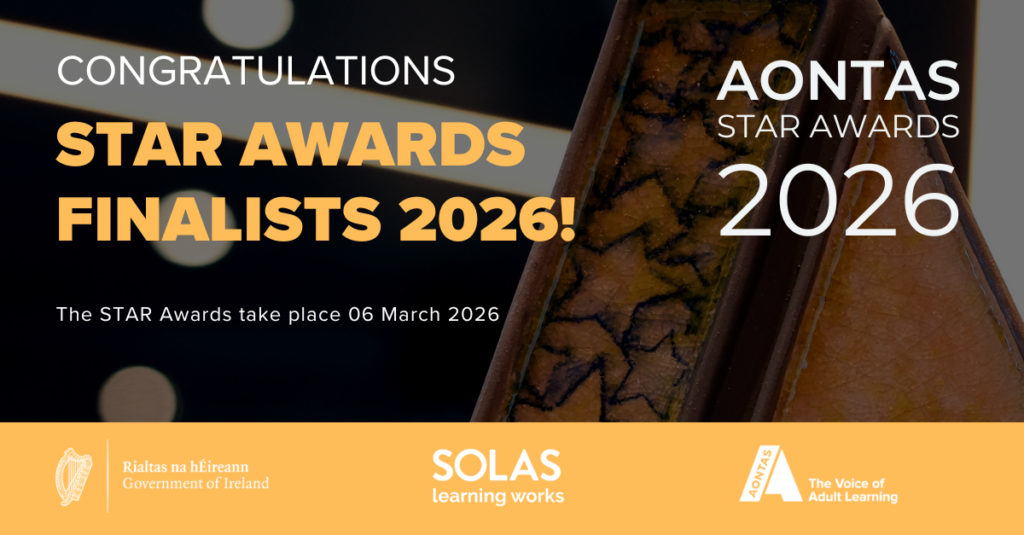For the next two years, our theme for our European work is ‘Building Stable Roots in a Sustainable Learning Ecosystem’. This has developed, not only through successful previous NEAAL projects, but also from the research and advocacy work that we do.
The main objective of ‘Building Stable Roots in a Sustainable Learning Ecosystem’ is to grow an empowering adult learning ecosystem that helps learners and education providers, specifically in the community education sector in Ireland.
Through this two-year project, we will hold and facilitate capacity-building workshops and events for community education providers. We will also be raising awareness on green and digital transitions, meaning how all members of our society can be well equipped to participate in and adapt to a world shaped by technology and climate change.
We will continue our work in highlighting the impact of the community education sector, and show that learning can happen anywhere, and we will foster innovative learning environments in community education and emphasise the transformative power of education.
We will also seek to influence the impact of the European Skills Agenda and the European Year of Skills initiative, with the needs of adult learners and community educators in mind.
Meeting with the Project Advisory Group
This was the first meeting of this group for this new project, and it set the tone for the next two years. We focused on discussions about the opportunities and challenges of raising awareness of the impact of changing technologies and the digital world, as well as sustainability and climate change, on the adult and community education sector.
17 people joined us for the meeting from 14 organisations across Ireland. There were representatives from SOLAS, LÉARGAS, Education and Training Boards Ireland (ETBI), Donegal ETB, SETU, Tipperary ETB, Women’s Resource and Development Agency (WRDA), Fórsa, the University of Limerick, Cork ETB, SAOLTA, and the University of Bristol.
We talked about introducing digital technologies in community-based programmes; co-creation of programmes and a learner-centred approach; the need for long-term funding for community programmes; the importance of creating new partnerships and bringing people together from across sectors; including future generations in decision-making; and the need to make new information relevant to the lives of learners.
Speaking at the event, Helen Manchester, one of the leads at Centre for ‘Sociodigital Futures’ at Bristol University, presented potential solutions for a more just and sustainable future in adult and community education.
Her work proposes that the social and the digital are bound together, and that digital has become so interwoven into our lives it is impossible to separate. She said we are living in a time of interlinked crises: structural injustices, the devastation of the planet, and a redefinition of what it means to be human.
She said that people, particularly those from marginalised or under-resourced communities, tend to disengage from the future as they feel a sense of powerlessness in face of the big ideas.
‘We need to go beyond asking what are your hopes for the future, and ask, what can you imagine in your preferred future? And we need to work with communities to make these visible and tangible.’
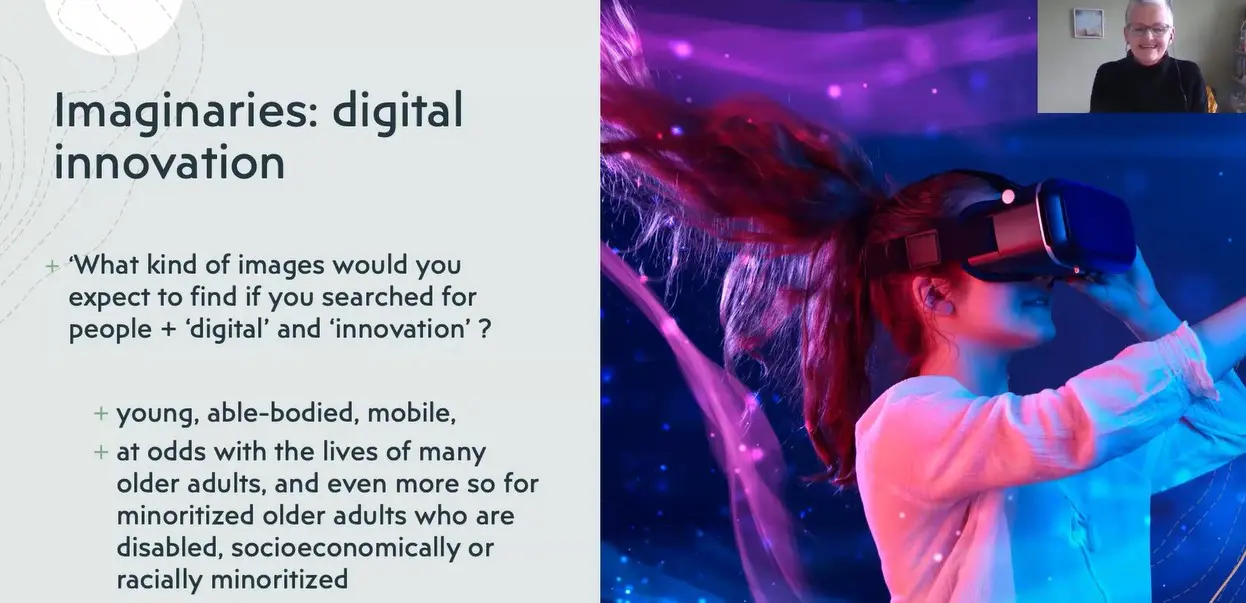
She said that we need to start recognising that the future is a building site in which we can all participate. Being able to imagine a different future is particularly important for the adult and community education sector as we work towards just and inclusive digital and green transitions.
Professor Manchester shared resources from her own work, with an example being a 3-year project ‘Connecting Through Culture As We Age’, which used participatory methods to enable older people to join in and express themselves through digital innovation and creativity.
These conversations with the Project Advisory Group all contribute to how we work collaboratively with others in the sector to influence and shape adult learning in Ireland and across Europe. We will continue to have these meetings throughout the year and into 2025.
For more information, contact Larisa at lsioneriu@aontas.com
